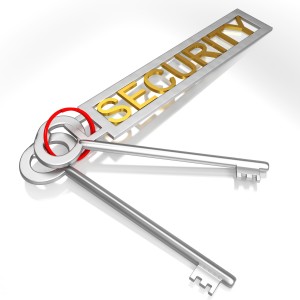 Getting older is a part of life. And with age comes a long list of personal security issues that can make it increasingly more difficult for seniors to continue living on their own. As we see it, addressing these issues comes down to two things: prevention and response. A few proven strategies can make a big difference for seniors.
Getting older is a part of life. And with age comes a long list of personal security issues that can make it increasingly more difficult for seniors to continue living on their own. As we see it, addressing these issues comes down to two things: prevention and response. A few proven strategies can make a big difference for seniors.
The idea of prevention is one of implementing solutions that will help seniors avoid problems. However, no prevention solution is 100% failsafe. That is where response comes in. When bad things do happen, the quickest possible response is the best way to ensure the most positive outcome. Let us look at both prevention and response a little more closely.
Preventing Security Issues
The arena of prevention involves both household accidents and external dangers such as fire and burglary. Where household accidents are concerned, it is important to note that the vast majority of accidents causing injury and death among seniors are slips and falls. According to the National Institutes for Health, 60% of slips and falls occur in the home. A sizable number of them involve those over the age of 65.
You can to minimize the risk of slips and falls by employing some very simple strategies:
1. Remove household clutter; keep hallways and staircases free of all obstacles.
2. Install handrails along the entire length of all staircases.
3. Make sure your home is well illuminated. Install motion sensitive lights in strategic locations.
4. Make sure all carpets and rugs are securely attached to the floor.
5. Install grab bars next to toilets and in showers and tubs.
External dangers, such as fire and burglary, are best prevented with the right kind of equipment. Fire and burglar alarms are good examples. By equipping your home with electronic security equipment, you can greatly reduce your risk of becoming a victim. Home security systems can protect against burglary, fire, carbon monoxide poisoning, and even flood.
Responding to Security Issues
In the event something unfortunate does happen, seniors need a way to initiate a quick response from those who can help. The most important thing one can do in this regard is to maintain open lines of communication with family members and friends who can be reached in emergency. When seniors cut off communications with others, whether out of spite or a simple lack of effort, they are not helping themselves in terms of personal security.
Telephone numbers and e-mail addresses of available contacts should be kept handy. Seniors should check those phone numbers and e-mail addresses on a regular basis, to make sure they are still in use.
As with prevention, taking advantage of security equipment is also an important part of emergency response. For example, we have already talked about a home security system to protect against burglary, fire, etc. When these kinds of systems are connected to a remote monitoring service, that service keeps watch over an individual and his/her property 24 hours a day. Any emergency can be quickly responded to by way of monitoring personnel immediately notifying local authorities.
An important component in any good home alarm system is the medical alert component. Medical alert systems provide seniors with pendants that are worn on the wrist or around the neck. Any sort of medical emergency that might prevent an individual from getting to the phone can still be handled by activating the pendant. Activation will cause monitoring personnel to immediately notify first responders.
Keeping seniors safe is all about reducing risk. The two best ways to reduce risk are to prevent those things that are preventable and put systems in place enabling quick response. If you are a senior, exercise your years of acquired wisdom and be safe. If you are a young person, do what you can to help the seniors in your life maintain a safe and secure home.
